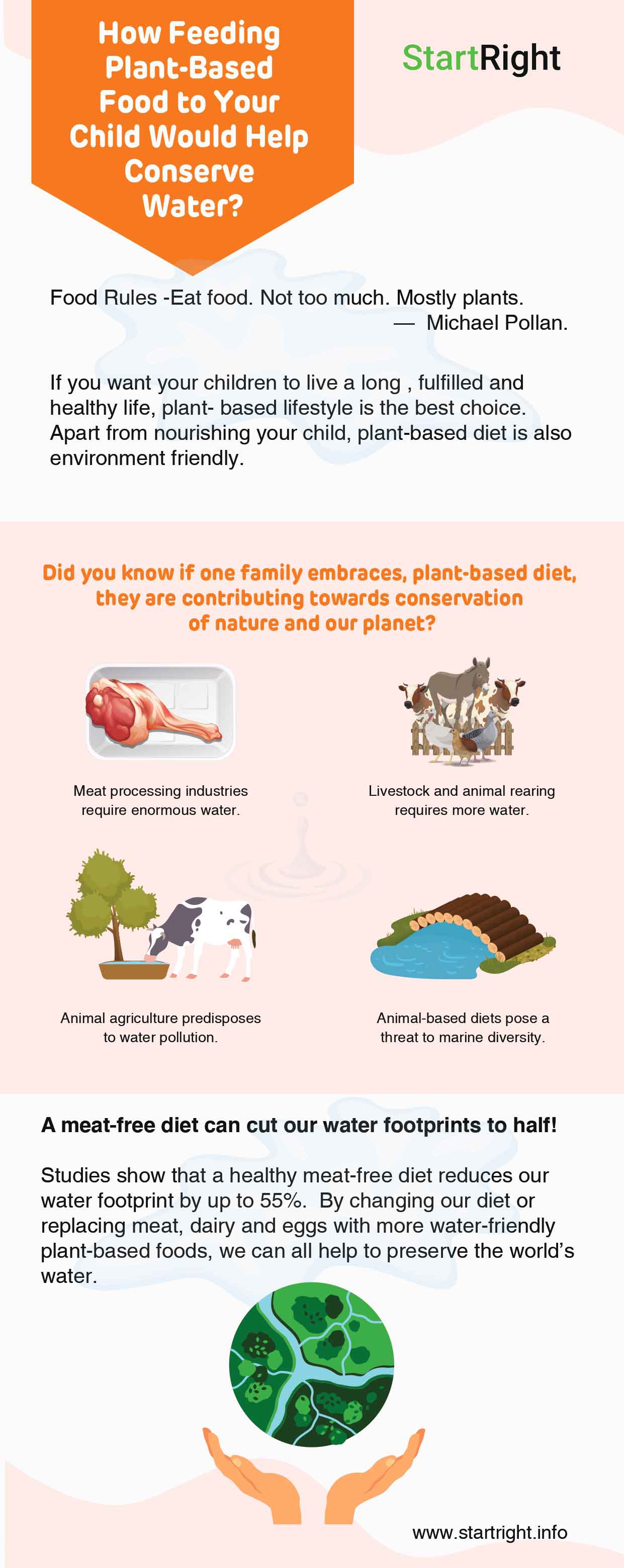Food Rules -Eat food. Not too much. Mostly plants.
— Michael Pollan, b 1955, an American author, journalist, activist, and professor of journalism. Plant based diet is the world’s most simple solution to a host of complex problems.
Infographic Click Here | For almost all of human history, people ate whatever they could get their hands on; availability, habit, and taste preferences were the factors that drove food choices. That changed a mere century or so ago, when the new science of nutrition revealed that food was more than just something to eat—it was part of an approach to optimal health. But, in the past few decades, we’ve come to understand that what we eat has more far-reaching effects. Not just on our health but on the lives of the animals who share this planet with us and on the very future of the planet itself. |
Problems in this world are infinite. Everyday we hear about global climate change, food shortage, poverty and natural calamities raging the planet. Do we feel that our next generation deserve this? Are they not entitled to live healthy life on a healthy planet?
Today, there are a lot of good reasons to embrace a vegan diet or a plant-based diet. If you want your children to live a long , fulfilled and healthy life, plant- based lifestyle is a best choice.
Apart from nourishing your child, plant-based diet is also environment friendly.
Did you know if one family embraces, plant-based diet, they are contributing towards conservation of nature and our planet
Globally 2.1 billion people live without safe water and around 4 billion people – nearly two-thirds of the world’s population – experience severe water scarcity during at least one month of the year.
Meat processing industries require enormous water use
It takes an enormous amount of water to grow crops for animals to eat, clean filthy factory farms, and give animals water to drink. The world is on the brink of water shortage and by going vegan one person can contribute towards water conservation. Based on a global average of water consumption, it takes about 460 gallons of water to produce just one quarter pound beef hamburger.
Livestock and animal rearing requires more water
Farming (animal and plant) accounts for about 70 percent of water used in the world today, up to 92 percent of freshwater, with nearly one-third of that related to animal farming and growing crops to feed to animals.
Animal agriculture predisposes to water pollution
Runoff from factory farms and livestock grazing is one of the leading causes of pollution in our rivers and lakes. The Environmental Protection Agency notes that bacteria and viruses can be carried by the runoff and that groundwater can be contaminated.
Animals raised for food are far more in number and produce more excrement. Without proper sewage-treatment plants, these waste products are just dumped into landfill or nearby rivers and lakes causing water pollution.
There is a threat to marine biodiversity
Intensive animal farming can cause serious water pollution such as eutrophication, an excessive amount of algae in the water caused by run-off of animal faeces and leftover feed, often leading to loss of fish and other aquatic wildlife.
A meat-free diet can cut our water footprint in half!
Studies show that a healthy meat-free diet reduces our water footprint by up to 55%.The United Nations Environment Assembly says that plant-based burgers require between 75 – 99 per cent less water; 93 – 95 per cent less land; and generate 87 – 90 per cent fewer emissions than regular beef burgers.
To summarise, by changing our diet or replacing meat, dairy and eggs with more water-friendly plant-based foods, we can all help to preserve the world’s water. By inculcating this lifestyle into your child you are securing a cleaner and a greener planet for him to spend his/her life.
References:
https://www.hsi.org/news-media/world-water-day-2019/









































Heya і am for the first time here. I came across this board and I
fіnd It really useful & it helped me ᧐ut much.
I hope to give something back and help othеrs like
you aidеd me.